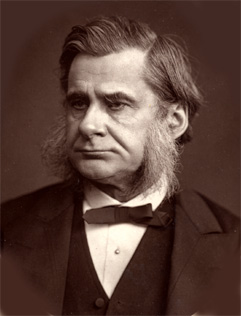본 피고인은 1985년 4월 1일 서울지방법원 남부지원에서 폭력행위등 처벌에 관한 법률위반으로 징역 1년 6월을 선고 받고 이에 불복 다음과 같이 항소이유서를 제출합니다. 다 음 본 피고인은 우선 이 항소의 목적이 자신의 무죄를 주장하거나 1심 선고형량의 과중함을 호소하는데 있지 않다는 점을 분명히 밝혀두고자 합니다.
이 항소는 다만 도덕적으로 보다 향상된 사회를 갈망하는 진보적 인간으로서의 의무를 다하려는 노력의 소산입니다. 또한 본 피고인은 1심 판결에 어떠한 논란거리가 내포되어 있는지 알지 못하며 알고 싶은 생각도 없습니다. 자신의 행위의 정당성을 판단하는 기준으로서 본 피고인이 관심을 두고 있는 것은 하느님이 주신 양심이라는 척도이지 인간이 만든 법률은 아니기 때문입니다.
법률에 대한 전문지식이 없는 본 피고인으로서는 정의로운 법률이 공정하게 운용되는 사회에서라면 양심의 명령이 법률과 상호적대적인 모순관계에 서게 되는 일은 결코 일어날 수 없으리라는 소박한 믿음 위에 자신의 삶을 쌓아올릴 수밖에 없었으며 앞으로도 역시 마찬가지일 것입니다. 인간과 인간, 인간집단과 인간집단 사이에서 일어나는 모든 폭력행위는 본질적으로 그 사회의 현재의 정치적·사회적·도덕적 수준의 반영인 동시에 미래의 그것을 결정하는 규정 요인 중의 하나입니다.
따라서 “폭력행위등 처벌에 관한 법률”(이하 폭행법이라 함) 위반 혐의로 형사소추되어 1심에서 유죄선고를 받은 본 피고인으로서는 자신이 관련된 사건이 우리 사회의 어떠한 정치적·사회적·도덕적 상태의 반영이며 또 미래의 그것에 어떠한 영향을 미칠 것인가를 규명함과 동시에 사건과 관련된 각 개인 및 집단의 윤리적 책임을 명백히 밝힐 의무가 있다고 생각합니다.
만일 우리 사회가 젊은 대학생들이 동 시대의 다른 젊은이들을 폭행하였다는 불행한 이 사건으로부터 “개똥이와 쇠똥이가 말똥이를 감금 폭행하였다. 그래서 처벌을 받았다”는 식의 흔하디 흔한 교훈밖에 배우지 못한다면 그것이야말로 사건 자체보다 더 큰 비극이라 아니할 수 없을 것입니다.
간단히 말해서 이 항소이유서는, 부도덕한 개인과 집단에게는 도덕적 경고를, 법을 위반한 사람에게는 법적 제재를, 그리고 거짓 성령 속에 묻혀 있는 국민에게는 진실의 세례를 줄 것을 재판부에 요구하는 청원서라 하겠습니다. 거듭 밝히거니와 본 피고인은 법률에 대해 논한다는 것이 아니므로 이 글 속에서 ‘책임’ ‘의무’ ‘과실’ 등등의 어휘는 특별한 수식어가 없이 사용된 경우, 그 앞에 ‘윤리적’ 또는 ‘도덕적’이라는 수식어가 생략된 것으로 간주하여 무방합니다.
그리고 본 피고인이 특히 힘주어 말하고 싶은 단어나 문장에는 윗점을 사용하였습니다. 본 피고인은 우선 이 사건을 정의(定義)하고 나서 그것을 설명한 다음 사건과 관련하여 학생들과 현정권(본 피고인이 신봉하는 자유민주주의의 기본원칙에 비추어 제 5 공화국이 합법성과 정통성을 갖추지 못하고 있음을 표시하기 위해 정부대신에 정권이라는 단어를 사용했습니다) 각자가 취한 행위를 분석함으로써 이 글의 목적을 달성코자 합니다.
이 사건은 학생들에 의해서는 ‘서울대 학원 프락치사건’으로, 정권과 매스컴에 의해서는 ‘서울대 외부인 폭행사건’으로 또는 간단히 ‘서울대 린치사건’이라 일컬어지고 있습니다. 이와 같은 사건명칭의 차이는 양자가 사건을 보는 시각을 전혀 달리하고 있음을 의미하는 현상이지만 그렇다고 해서 사건의 본질 자체가 달라질 리는 만무한 일입니다.
본 피고인이 가능한 한 객관적인 입장에서 이 사건을 정의하자면 이는 정권과 학원간의 상호적대적 긴장이 고조된 관악캠퍼스 내에서, 수사기관의 정보원이라는 혐의를 받은 네명의 가짜학생을 다수의 서울대 학생들이 연행·조사하는 과정에서, 혹은 약간의 혹은 심각한 정도의 폭행을 가한 사건입니다.
‘정권과 학원간의 상호적대적 긴장상태’를 해명하기 위해서 우리는 4월 민주혁명을 짓밟고 이땅에 최초의 군사독재정권을 수립한 5·16 군사쿠데타 이후 4반세기에 걸쳐 이어온 학생운동의 반독재 민주화 투쟁혈사(血史)와 아울러 가열되어온 독재정권의 학원 탄압사를 살펴 보아야 할 터이지만, 이 글이 항소이유서임을 고려하여, 1964~65년의 대일 굴욕외교 반대투쟁(소위 6·3사태), 1974년의 민청학련 투쟁, 1979년 부산마산지역 반독재 민중투쟁 등을 위시한 무수한 투쟁이 있어 왔다는 사실을 지적하는데 그치기로 하고 현정권의 핵심부분이 견고히 형성되어 사실상 권력을 장악한 1979년 12월 12일의 군사쿠데타 이후 상황만을 살펴보기로 하겠습니다.
지금 우리 사회의 경제적 모순·사회적 갈등·정치적 비리·문화적 타락은 모두가 지난 날의 유신독재 아래에서 배태·발전하여 현정권 하에서 더욱 고도성장을 이룩한 것들입니다. 현정권은 유신독재의 마수에서 가까스로 빠져 나와 민주회복을 낙관하고 있던 온국민의 희망을 군화발로 짓밟고, 5·17 폭거에 항의하는 광주시민을 국민이 낸 세금과 방위성금으로 무장한 ‘국민의 군대’를 사용하여 무차별 학살하는 과정에서 출현한 피묻은 권력입니다.
현정권은 정식출범조차 하기 전에 도덕적으로는 이미 파산한 권력입니다. 현정권이 말하는 ‘새시대’란, 노골적·야수적인 유신독재헌법에 온갖 화려한 색깔의 분칠을 함으로써 그리고 총칼의 위협아래 국민에게 강요함으로써 겨우 형식적 합법성이나마 취할 수 있었던 새로운 ‘유신시대’이며, 그들이 말하는 ‘정의(正義)’란 소수군부세력의 강권통치를 의미하며, 그들이 옹호하는 ‘복지’란 독점재벌을 비롯한 있는 자의 쾌락을 뜻하는 말입니다.
‘경제성장’ 즉 자본주의 발전을 위하여 ‘비효율적인’ 각종 민주제도(삼권분립, 정당, 노동조합, 자유언론, 자유로운 집회결사) 등을 폐기시키려 하는 사상적 경향을 우리는 파시즘이라 부릅니다. 그리고 그러한 파시스트 국가의 말로가 온 인류를 재난에 빠뜨린 대규모 전쟁도발과 패배로 인한 붕괴였거나, 가장 다행스러운 경우에조차도 그 국민에게 심대한 정치적·경제적 파산을 강요한 채 권력내부의 투쟁으로 자멸하는 길뿐임을 금세기의 현대사는 증명하고 있습니다.
나찌 독일, 파시스트 이탈리아, 군국주의 일본은 전자의 대표적인 실례이며, 스페인의 프랑코 정권, 합법정부를 전복시키고 등장했던 칠레·아르헨티나 등의 군사정권, 하루저녁에 무너져버린 유신체제 및 지금에야 현저한 붕괴의 조짐을 보이고 있는 필리핀의 마르코스 정권 따위는 후자의 전형임에 분명합니다.
국가는 그것이 국가이기 때문이 아니라, 그것만이 구성원 모두에게 서로 방해하지 않고 자유롭게 행복과 자아실현을 추구할 수 있는 조건을 마련해주기 때문에 존귀합니다. 지난 수년간, 인간다운 삶을 위한 최소한의 조건을 요구하며 투쟁한 노동운동가, 하느님의 나라를 이땅에 구현하기 위해 노력한 양심적 종교인, 진실과 진리를 위하여 고난을 감수한 언론인과 교수들, 그리고 민주제도의 회복을 갈망해온 민주정치인들의 선봉에 섰던 젊은 대학인들은, 부도덕하고 폭력적이며 비민주적일 뿐만 아니라 반민중적이기 때문에, 국민이 자유롭게 보고 듣고 말할 수 있는 조건 아래서라면 단 한주일도 유지될 수 없는 현 군사독재정권이 그토록 존귀한 우리 조국의 대리인이 될 수 없음을 주장해 왔습니다. 우리 국민은 보다 민주적인 정부를 가질 자격과 능력이 있다고 믿기 때문입니다.
그러나 현정권은 12·12 군사쿠데타 이후 4년동안 무려 1,300여명의 학생을 각종 죄목으로 구속하였고 1,400여명을 제적시키는 한편 최소한 500명 이상을 강제징집하여 경찰서 유치장에서 바로 병영으로 끌고 갔습니다. 뿐만 아니라 교정 구석구석에 감시초소를 세우고 사복형사를 상주시키는 동시에 그것도 모자라 교직원까지 시위진압대로 동원하는 미증유의 학원탄압을 자행하였습니다.
그러면서도 한번도 이러한 사실을 시인한 적이 없으며, 1982년 기관원임을 자칭한 괴한에게 어린 여학생이 그것도 교정에서 강제추행을 당하는 기막힌 사건이 일어났을 때조차, 최고위 치안 당국자는 국회 대정부 질의에 대하여 “교내에 경찰을 상주시킨 일이 없다. 유언비어의 진원지를 밝혀내 발본색원하겠다”고 태연하게 답변하였을 정도입니다. 현재 학원가를 풍미하고 있는 전경 특히 경찰에 대한 불신과 적대감은 이와 같은 정권의 학원탄압 및 권력층의 상습적인 거짓말이 초래한 유해한 결과들 중의 한가지에 불과합니다.
이솝우화의 양치기 소년의 거짓말은 양떼를 잃어버리는 작은 사건을 낳는데 그쳤지만 주 유왕(周 幽王)이 미녀 포사(褒似)를 즐겁게 하기 위해 거짓봉화를 울린 일은 중국대륙 전체를 이후 500여년에 걸친 대 전란의 와중에 휩쓸리게 한 계기가 되었습니다. 그러나 현명한 사람이라면 그 누구도 양치기 소년의 외침을 외면한 마을사람들이나 오랑캐에게 유린당하기까지 주(周)왕실을 내버려 둔 제후들을 어리석다 말하지 않습니다.
정권의 주장이라면 콩으로 메주를 쑨다 해도 믿지 않으려는 학생들의 불신은 과연 누구의 책임이겠습니까? 더욱이 야만적이고 부도덕한 학원탄압은 전국 각 대학에서 목숨을 건 저항을 유발하였고 그 결과 일일이 헤아리기 힘들 정도로 많은 학생들이 생명을 잃거나 중상을 당했습니다. 서울대학교에서만도 고 김태훈·황정하·한희철 등 셋이나 되는 젊은 생명이 희생되었습니다.
이와 같은 상황으로 83년 12월의 소위 자율화조치 이후에도 주전선(主戰線)이 교문으로 이동하였다는 단 한가지를 제외하면 거의 변함없이 계속되어 왔으며, 특히 지난해 9월 총학생회 부활을 전후하여 더욱 강화되었던 수사기관의 학원사찰, 교문앞 검문검색, 미행과 강제연행 등으로 인해 양자간의 적대감 또한 전례없이 고조된 바 있습니다. 즉 소위 자율화조치 이후에도 ‘학원과 정권 사이의 적대적 긴장상태’는 여전히 지속되고 있었던 것입니다.
이 사건은 바로 이와 같은 조건 하에서 수명의 가짜학생이 수사기관의 정보원이라는 혐의를 받을만한 행위를 하였기 때문에 거의 자연발생적으로 일어난 예기치 못한 사건입니다. 이들의 의심을 받게된 경위 및 사건경과는 이미 밝혀진 바이므로 재론할 필요가 없지만 여기에서 가짜학생에 대해서는 약간의 부연설명이 도움이 되리라 생각합니다.
그들이 실제로 정보원인지 그 여부는 극히 중요한 정치적 관심사임에 분명하지만 사건의 법률적·윤리적 측면과는 거리가 있는 문제입니다. 왜냐하면, 학생들이 연행·감금·조사 또는 폭행한 것은 결코 정보원이나 단순한 가짜학생이 아닌 ‘정보원 혐의를 받고 있는 자‘들이기 때문에 폭력 자체가 정당할 수는 없으며 또 아니라고 해서 학생들의 일체의 행위가 모두 부당했다고 말할 수도 없는 일이기 때문입니다.
본 피고인이 이 문제에 대해 재론하지 않는 것은 그들이 정보원이 아니라고 생각하기 때문이 아니라 바로 위의 이유에 의해서 입니다. 갖가지 목적으로 학생처럼 위장하고 캠퍼스를 배회하는 수많은 가짜 학생들, 이들은 소위 대형화·종합화된 오늘날의 대학에서, 졸업정원제·상대평가제 등 대학을 사회현실에 대한 비판의식이 마비되어 제 한 몸 잘사는 일에만 관심이 있는 전문기능인의 집단양성소로 전락시키기 위해 독재정권이 고안해 낸 각종 제도가 야기한 바 대학인의 원자화·고립화 등 비인간화 현상을 틈타 캠퍼스에 기생하는 반사회적 인간집단으로서, 교내에서 일상적으로 벌어지는 절도·사기·추행·학원사찰의 보조활동(손형구의 경우처럼) 등과 복합적인 관련을 맺고 있음으로 해서 대학인 상호간에 광범위한 불신감을 조성하고 대학의 건강한 공동체문화를 파괴하는 암적 존재입니다.
현정권은 이들이 대학인의 일체감을 파괴하고 있을 뿐만 아니라 교내에 사복경찰을 상주시킴으로써 야기된 숱한 문제들마저 이들에게 책임전가시킬 수 있다는(여학생 초생사건 때처럼) 이점 때문에 가짜학생의 범람현상을 방관 또는 조장하여 온 것입니다.
따라서 학생들이 이들에 대해 평소 품고 있는 혐오감이 어떠한가는 설명할 필요조차 없는 일입니다. 이들이, 이들 가짜들이, 혹은 복학생들의 소규모 집회석상에서 혹은 도서실에서, 법과대학 사무실에서, 강의실에서, 버젓이 학생행세를 하면서 학생활동에 대한 정보 수집활동을 하다가 탄로났을 경우, 법이 무서워서 이를 묵과하는 것이 윤리적으로 올바른 일이겠습니까? 상호적대적인 분위기 속에서, 바로 그들을 보냈으리라 추정되는 수사기관에, 정보원 혐의를 받고 있는 가짜학생의 신분조사를 의뢰하는 일이 일어날 수 있겠습니까?
물론 대학의 교정은 개방된 장소이므로 은밀한 사찰행위뿐만 아니라 예전처럼 수백 수천의 정·사복 경찰이 교정을 온통 휘젓고 다닌다 할지라도 이는 전혀 비합법 행위는 아닐 것입니다. 하지만 본 피고인은 이러한 행위가 도덕적으로 바람직하다고 하는 말을 들어보지 못했습니다.
반면 이러한 부도덕한 학원 탄압행위에 대한 학생들의 여하한 실질적 저항행위도, 비록 그것이 윤리적으로 정당한 일이지만, 현행법률에 대한 명백한 침해가 될 것입니다. 바로 여기에서 정의로운 사회에서라면 존재할 수 없는 법과 양심의 상호적대적인 모순관계가 필연적으로 발생합니다. 그 누구도 이 상황에서 법과 양심 모두를 지키기란 불가능합니다.
이 사건이야말로 우리 사회 전체가, 물론 대학사회도 포함하여, 당면한 정치적·사회적 모순의 집중적 표현이라는 학생들의 주장은 바로 이와 같은 논거에 입각한 것입니다. 법은 자기를 강제할 수 있는 힘을 보유하고 있지만 양심은 그렇지 못합니다. 법은 일시적 상대적인 것이지만 양심은 절대적이고 영원합니다. 법은 인간이 만든 것이지만 양심은 하느님이 주신 것입니다.
그래서 본 피고인은 양심을 따랐습니다. 그것은 법을 지키는 일이 중요하지 않기 때문이 아니라 양심의 명령을 따르는 일이 더 중요했기 때문입니다. 본 피고인뿐만 아니라 모든 학생들이, 이 사건에서만이 아니라 그 이전의 어느 사건에서도 그랬습니다. 지난해 9월, 10일간에 걸친 일련의 사건은 이렇게 하여 일어난 것입니다.
그러나 자체로서 그리 복잡하지 않은 이 사건은 서울대생들의 민한당사 농성사건, 주요 학생회 간부들의 제적·구속, ‘학생운동의 폭력화’에 대한 정권과 매스컴의 대공세, 서울대 시험거부 투쟁과 대규모 경찰투입 등 심각한 충격파를 몰고 왔으며 공소 사실을 거의 전면부인하는 피고들에게 유죄를 선고함으로써 일단락된 바 있습니다.
사건종료 다음날인 9월 28일 전학도호국단 총학생장 백태웅과 뒤늦게 프락치사건 대책위원장 겸 사회대학생장 오재영군 등이 지도한 민한당사 농성은 자연발생적·비조직적으로 일어난 이 사건을 부도덕한 학원사찰 및 정권의 비민주성을 비판하는 조직적 투쟁으로 고양시키기 위한 것이었습니다. 비로 가짜 학생들을 조사하는 과정에서 학생들의 법률적·윤리적 과실이 있었다 하더라도, 그 때문에 학원사찰의 존재라는 별개의 정치적 문제를 덮어둘 수는 없는 일이므로 이 투쟁은 그 자체로서 완전히 정당한 행위였다고 본 피고인은 생각합니다.
이 일이 있은 다음 날인 9월 29일 저녁 학교당국은 이정우·백기영·백태웅·오재영 등 4명의 총학생회 주요간부를 전격적으로 제명 처분하였으며 본 피고인은 9월 30일 하오 경찰에 영장없이 강제연행 당한 후 며칠간의 조사를 받고 구속되었습니다. 본 피고인이 가장 먼저 연행당한 것은 미리 도피하지 않았기 때문이며, 도피하지 않은 것은 필요를 느끼지 않았기 때문이고, 필요를 느끼지 않은 것은 도망칠만큼 잘못한 일이 없었기 때문입니다.
본 피고인은 경찰·검찰에서의 조사 및 법정진술시 기억력의 한계로 인한 사소한 착오 이외에 여하한 수정·번복도 한 바 없었으며 오직 사실 그대로를 말했을 따름입니다. 어쨌든 서울시경국장은 10월 4일 소위 ‘서울대 외부인 폭행사건’의 수사결과를 도하 각 신문·TV·라디오를 통해 발표하였는데, 그에 의하면 4명의 외부인을 감금·폭행한 이 일련의 사건이 복학생협의회 대표였던 본 피고인 및 학생대표들의 합의 아래 의도적이고 조직적으로 만들어졌다는 것이었습니다.
그러나 적어도 10월 4일 이전에 경찰에 연행된 몇몇 학생들 중(본 피고인을 포함) 어느 누구도 이 발표를 뒷받침해줄 만한 진술을 한 바 없으며, 이후에 작성된 구속영장·공소장 및 관련학생들의 신문조서들이 모두 이 발표의 기본선에 맞추어 만들어진 것임은, 만일 이 모든 서류를 날짜별로 검토해 본다면, 누구의 눈에나 명백한 일입니다.
한마디로 10월 4일의 경찰발표문의 본질은 모종의 정치적 목적을 위한 견강부회·침소봉대·날조왜곡 바로 그것입니다. 그 목적이란 다름이 아니라 학생운동을 폭력지향적인 파괴활동으로 중상모략함으로써 이 사건의 정치적 성격은 물론 현정권 자체의 폭력성과 부도덕성을 은폐하려는 것입니다. 이 목적을 달성하기 위해서는 이 사건이 비조직적·우발적으로가 아니라, 학생단체의 대표들에 의해 조직적이고 의도적으로 만들어진 것이어야 했습니다.
그래야만 몇몇 관련 학생뿐만이 아니라 학생운동 전체를 비방할 수 있기 때문입니다. 그래서 총학생회장, 학도호국단 총학생장, 프락치사건 대책위원장, 복학생협의회 대표 등은, 그가 구체적으로 어떤 인간이며 어떤 행위를 실제로 했는가에 관계없이 선전을 위한 가장 손쉬운 희생물이 되어야만 했던 것입니다.
물론 이러한 수법은 지난 수십년간 대를 이어온 독재정권들이 기회 있을 때마다 상투적으로 구사해온 낡은 수법을 그대로 답습한 것에 지나지 않으며 전혀 새로운 것이 아닙니다. 그리고 결과적으로 현정권은 막 출범한 서울대 학생회의 주요 간부의 활동을 실질적으로 봉쇄하는 동시에, 60만 대군을 동원해도 때려 부술 수 없는 학생운동의 도덕성을 훼손시키는 데에 어느 정도는 성공한 것으로 보입니다.
따라서 마치 자신이 더 도덕적인 존재가 된 듯한 자기만족조차 조금은 맛볼 수 있었을 것입니다. 검찰 역시 사실을 밝혀내는 일보다는 경찰의 발표를 뒷받침하기에만 급급하여 대동소이한 내용의 공소를 제기하고 그것에만 집착하여 왔습니다. 사건 발생후 일개월도 더 지난 작년 11월, 관악경찰서 수사과 형사들이 김도형·손택만군 등 무고한 학생들에게 가혹한 고문을 가함으로써 공소사실과 일치하는 허위자백을, 형사들 자신의 표현을 빌자면, 짜내었다는 사실이 그 증거입니다.
즉 경찰은 본 피고인들이 ‘폭행법’을 위반하였다는 증거를 바로 그 ‘폭행법’을 위반하여 관련된 학생들을 고문함으로써 짜낸 것입니다. 그 짜내어진 허위자백이 증거로 채택된다는 사실을 못 본 체 하더라도 ‘법앞에서의 평등’이라는 중대한 문제는 여전히 남아 있습니다. 전혀 정당한 윤리적 기초를 갖지 못하였기 때문에 양심인으로서는 복종의 의무를 느낄 필요가 없었던 지난날의 긴급조치나 현행 ‘집시법’과 달리 이 ‘폭행법’은 지켜져야 하며 또 지켜질 수 있는 법률이라 생각합니다.
그러나 각인은 현정권에 대한 정치적 견해에 따라 이 법 앞에서 불평등한 위치에 놓여 있습니다. 본 피고인은, 과분한 탓인지 모르겠으나, 학생들을 상습적으로 폭행·고문하는 각 대학 앞 경찰서의 정보과 형사들이 그 때문에 ‘폭생법’ 위반으로 형사소추당했다는 비슷한 이야기조차 들은 적이 없습니다.
그러나 지난해 5월 19일, ‘민주화운동 청년연합’이 주최한 광주항쟁 희생자 추모집회에 참석하였다가 귀가하는 길에, 그녀 자신 제적학생이면서 역시 고려대학교 제적학생인 서원기씨의 부인 이경은씨가 동대문 경찰서 형사대의 발길질에 6개월이나 된 태아를 사산한 사건이 일어났을 때 그 부부는 이 법의 보호 밖에 놓여 있음이 누구의 눈에나 명백히 드러났습니다. 고소장을 접수하고서도, 검찰은 수사조차 개시하지 않았기 때문입니다.
본 피고인 역시 여러 차례 수사기관에 연행되어 조사받는 과정에서 폭행당한 적이 한두번이 아니지만 이 법의 보호를 요청할 엄두조차 내본 적이 없습니다. 그런데 그 누구에게도 협박 또는 폭행을 가한 일이 없음에도 불구하고 본 피고인은 폭력법으로 유죄를 선고받고 말았습니다. 본 피고인이 굳이 지난 일을 이렇듯이 들추어냄은 오직, 흔히 이야기되고 있는 바 검찰의 정치적 편향성의 존재를 환기하기 위한 것입니다. 즉 이 사건을 담당한 경찰관 역시 앞에서 밝힌 바 현정권의 정치적 음모와 무관하지 않았음을 지적하기 위해서였습니다.
결론적으로 검찰이 주장하는 바 공소사실의 대부분은 불순한 정치적 목적을 위해 경찰이 날조한 사건 내용을 뒷받침하기 위한 것으로서, 한편에 있어서는 정권과 매스컴이 공모하여 널리 유포시킨 일반적인 편견이 기초 위에 서 있으며, 동시에 다른 한편으로는 경찰이 고문수사를 통해 짜낸 관련 학생들의 허위자백에 의해 지지되고 있는 공허한 내용으로 가득찬 것입니다.
그러나 본 피고인이 이 사건에서 드러난 학생들의 과실과 본 피고인 자신의 법률적·윤리적 책임을 회피하기 위하여 이렇듯 정권의 부도덕을 소리 높이 성토하고 있는 것은 결코 아닙니다. 가짜학생에 대한 연행·조사가 윤리적으로 정당하다손치더라도, 이들에게 가한 폭행까지를 정당화할 의향은 없습니다. 조사를 위한 감금은 가능한 한 짧아야 하며 폭행이 있어서는 안됩니다.
물론 현상적으로 폭력처럼 보인다고 해서 그것이 본질상 다 폭력의 영역에 속할 수는 없지만, 무력한 개인에게 다중이 가한 폭행은 비록 그것이 경찰에 대한 이유있는 적대감의 발로인 동시에 그들이 상습적으로 학생들에게 가해온 고문을 흉내낸 것이라 할지라도 학생운동의 비폭력주의에서 명백히 이탈한 행위라고 판단해야 할 것입니다.
또 폭행을 가한 당사자들이 스스로 나서서 책임을 감당하지 않은 것 또한, 비록 그것을 어렵게 만든 당시의 특수한 정치적 사정이 개재됐다손치더라도, 학생들이 가진 윤리적 결함의 표현이라 생각합니다. 하지만, 그 자신 폭행과 절대로 무관하며사건 전체와도 전혀 관계가 없다고 하여 틀림이 없을 총학생회장 이정우군이 스스로 모든 책임을 떠맡아 항소조차 포기했다고 하는 아름다운 행위가, 그 누구도 선뜻 폭행의 책임을 감당하려 하지 않음으로써 발생한 윤리의 공백상태를 어느 정도는 메꾸어 주었다고 본 피고인은 확신합니다.
본 피고인은 역시 언행이나 조사를 지시한 사실이 없지만(지시할 필요가 없었으므로), 만일 그럴 필요가 있었다면 언제라도 기꺼이 직접 그들을 연행·조사하였을 것입니다(그것이 위법임은 물론 잘 알지만). 본 피고인은 복학생 협의회의 사실상의 대표로서 개인적으로 비폭력의 원칙을 준수해야 할 소극적 의무에 부가하여 학생운동의 전체수준에서도 이 원칙이 관철될 수 있도록 노력해야 할 적극적 의무 또한 완수해야 할 위치에 있습니다.
따라서 문제의 9월 26일 밤 전기동·정용범 양인이 구타당하는 광경을 잠시 목격하고서도 그것을 제지하려 하지 않았던 본 피고인에게는 다른 학생들보다 더 큰 윤리적 책임이 있음에 분명합니다(법률적 측면에서는 어떨지 모르겠지만). 또한 임신현·손형구의 경우에도 본 피고인이 사건에 접했을 때는 이미 감금 및 조사가 진행 중이었으므로 어떠한 지시를 내릴 필요가 전혀 없었습니다.
그러나 본 피고인 자신 조사를 위한 감금에 명백히 찬동했으며 또 잠시나마 직접 조사에 임한 적도 있기 때문에 법률을 어긴 것은 틀림없는 사실이며 그에 따른 책임이라면 흔쾌히 감수할 것입니다. 그러나 이 두 사람의 경우, 가능한 한 짧은 감금과 비폭력이라는 원칙을 관철시키기 위해 최선을 다했으며 실제로 이 원칙이 관철되었으므로 본 피고인은 아무런 윤리적 책임도 느끼지 않습니다.
어쨌든 상당한 정도의 법률적·윤리적 책임이 자신에게 있음을 떠맡기 위해 이정우군처럼 처신할 수도 있었을 것이며 그 또한 나쁘지 않은 일이었으리라 믿습니다. 그러나 이미 밝힌 바와 같이 너무나도 명백한 정권의 음모의 노리개가 될 가능성 때문에 본 피고인은 사실과 다른 것은 그것이 아무리 사소한 것일지라도, 결코 시인하지 않으리라 결심하였고 또 그런 자세로 법정투쟁에 임해 왔습니다.
그래야만 본 피고인은 자신이 느끼고 있는 책임감이, 공소사실을 기정사실화시키기 위해 우격다짐으로 요구하는 그것과는 성질상 판이한 것임을 보일 수 있기 때문입니다. 아울러 본 피고인은 이 사건의 재판이 갖는 정치적 의미가 무엇이며 이 사건을 우리 사회의 도덕적 진보의 계기로 삼으려면 사법부가 본연의 윤리적 의무를 완수해야 함을 말씀드리고자 합니다.
이 사건은 누적된 정권과 학원간의 불신 및 적대감을 배경으로 하여 수명의 가짜학생이 행한 전혀 비합법적이라 할 수 없지만 명백히 부도덕한 정보수집행위가 본질적으로 부도덕하지 않으나 명백히 비합법적인 학생들의 대응행위를 유발함으로써 빚어진 사건입니다. 지난 수년간 현정권이 보여준 갖가지 부도덕한 행위들 - 학원내에 경찰을 수백명씩이나 상주시키면서도 온국민에게 거짓증언을 한 치안당국자의 행위, 소위 자율화조치라고 하는 아름다운 간판 위에서 음성적인 확원사찰을 계속 해온(이에 관해서는 법정에서 상세히 밝힌 바 있음) 수사기관의 행위, 불순한 정치적 목적을 위해 이 사건조차 서슴지 않고 날조·왜곡한 행위 등 - 은 같은 뿌리에서 돋아난 서로 다른 가지에 불과합니다.
하지만 이 재판은 사건의 진정한 원인을 규명하여 그에 대한 처방을 내리는 것이 아니라 학생들의 행위중 비합법적인 부분만을 문제삼아 처벌하기 위한 것입니다. 아마도 사법부 자체는 이처럼 부도덕한 정권의 학원난입 행위를 옹호하려는 의도가 없을런지도 모릅니다. 그렇지만 사태의 전후맥락을 모조리 무시한 채 조사를 위한 연행·감금마저(폭행부분이 아니라) 형사처벌의 대상으로 규정한 1심의 판결은 지금 이 시간에도 갖가지 반사회적 목적으로 위해 교정을 배회하고 있을 수많은 가짜학생 및 정보원의 신변안전을 보장한 ‘가짜학생 및 정보원의 안전보장 선언’이 아니라 말할 수가 없는 것입니다.
본 피고인은 결코 학생들의 행위 전부에 대한 무죄선고를 요구하지 않습니다. 반복되는 말이지만, 부도덕한 자에 대한 도덕적 경고와 아울러 법을 어긴 자에 대한 법적 제재가 가해져야 하며, 허위선전에 파묻힌 국민에게는 진실의 세례를 주어야 한다는 것, 사태의 책임소재를 분명히 하지 않고서는 우리 모두의 도덕적 향상은 기대될 수 없는 것을 주장할 따름입니다. 법정이 신성한 것은 그것이 법정이기 때문이 결코 아니며, 그곳에서만은 허위의 아름다운 가면을 갈기갈기 찢어버리고 때로는 추악해 보일지라도 진실의 참모습을 만날 수 있기 때문입니다.
만일 오늘날의 사법부가 하늘이 무너져도 정의(正義)를 세우며, 또 그 정의가 강자(强者)의 지배를 의미하지 않는다면, 1심의 재판과정에서 매장당한 진실이 다시금 생명을 부여받을 수 있어야 한다고 본 피고인은 믿습니다. 그렇지 않으면 우리는 아마도 이 사건으로 인하여 그렇지 않아도 쉽게 허물어버리기 어려울 만큼 높아져 있는 현재의 불신과 적대감의 장벽 위에 분노의 가시넝쿨이 또 더하여지는 것을 보아야 할 것이고, 언젠가는 더욱 격렬한 형태로 폭발할 유사한 사태를 반드시 만나게 될 것입니다.
지난 5년간 현정권에 반대했다 하여 온갖 죄목으로 투옥되었던 1,500여명의 양심수 들이 한 사람도 빠짐없이 이 ‘신성한 법정’에서 정의로운 재판관들에 의해 유죄선고를 받았습니다. 야수적인 유신독재 치하에서도 역시 그만큼 많은 분들이 전대미문의 악법 ‘긴급조치’를 지키지 않았다 하여 옥살이를 하였습니다. 긴급조치 위반사건의 보도 또한 긴급조치 위반이었으므로 아무도 그 일을 말할 수조차 없었습니다. 변론을 하던 변호사도 그 변론 때문에 구속당했습니다.
지금에 와서 긴급조치가 정의로운 법이었다고 주장하는 사람은 별로 없지만, 그리고 그때 투옥되신 분들이 ‘반사회적 불순분자’ 또는 ‘이적행위자’였다고 말하는 이도 거의 없지만, 그분들을 ‘죄수’로 만든 법정은 지금도 여전히 ‘신성하다’고 하며 그분들을 기소하고 그분들에게 유죄를 선고한 검찰과 법관들 역시 ‘정의구현’을 위해 일하고 있다고 합니다. 누군가가 “지금까지 우리나라의 사법부가 정의를 외면해 왔다”고 말한다면, 그것은 “법정이 민주주의의 처형장으로 사용되어 왔다”는 뜻일 것입니다. 누군가가 “지금까지 우리나라의 사법부가 정의를 세워왔다”고 말한다면, 그리고 그가 진정 진지한 인간이라면, 그는 틀림없이 “정의란 독재자의 의지이다”고 굳게 믿는 인간일 것입니다.
본 피고인은 그곳에 민주주의가 살해당하면서 흘린 피의 냄새가 짙게 배어있기 때문이 아니라, 그곳에서만은 진실의 참모습을 만날 수 있다는 의미에서의 신성한 법정에서 재판을 받고 싶습니다. 본 피고인은 자신에게 유죄를 선고하는 재판관이 ‘자신의 지위가 흔들리지 않는 한도 내에서만 정의에 관심을 갖는’ 그런 정도가 아니라 ‘하늘이 무너져도 정의를 세우는’ 현명한 재판관이기를 간절히 바라고 있는 것입니다.
그리고 진실을 밝히는 일이야말로 정의가 설 토대를 건설하는 일이라 믿습니다. 이상의 논의에 기초하여 본 피고인은 1심판결에 승복할 수 없는 이유를 간단히 언급하고자 합니다. 본 피고인은 판결문을 받아보았을 때 참으로 서글픈 심정을 금할 수 없었습니다. 왜냐하면 그것이 무려 7회에 걸쳐 진행된 심리과정에서 밝혀진 사건의 내용과 거의 무관한 것이기 때문입니다.
따라서 본 피고인이 그토록 진지하게 임했던 재판의 전과정이 단지 예정된 판결을 그럴듯하게 장식해주기 위해 치루어진 무가치한 요식행위에 지나지 않았음을 뒤늦게 깨달았기 때문입니다. 우선, 「판결이유」의 ‘범죄사실’ 제 1 항 중 “······임신현이····· 구타당하는 것을 목격하고, 피고인 유시민은 성명불상 학생들에게 위 임신현의 신분을 확인·조사토록 하고···”라는 부분은 형식논리상으로조차 성립할 수 없었습니다.
본 피고인에게 지시를 받은 학생이 실제로 존재한다는 사실이 증명되었다면, 어떻게 그가 성명불상일 수가 있습니까? 그리고 본 피고인이 한번도 이를 시인한 바 없으며, 백수택군 등 여러학생들의 진술은 물론이요, 임신현 자신의 법정진술에 전적으로 의존한다 할지라도, 본 피고인이 임신현이 연행 구타되던 현장에 있었음을 증명하기란 불가능한 일인데 하물며 본 피고인이 성명불상의 누군가에게 어떠한 지시를 내렸다는 일이 어찌 증명 가능하겠습니까?
사실 본 피고인은 그때 그곳에 있지 않았습니다. 다음, ‘범죄사실’ 제 2 항 중 “·····위 김도인은 피고인 백태웅과 피고인 유시민 앞에서····· 구타하여 동인(손형구를 말함)에게 전치 3주간의·····다발성 좌상을 가한·····” 부분 역시, “백태웅과 유시민에게 조사받는 동안 한번도 폭행당한 일이 없다”고 한 손형구 자신의 법정진술에조차 모순됩니다. 그리고 ‘범죄사실’ 제 3 항 중 “피고인 유시민은·····동일(9월 26일을 말함) 21:00경부터 익일 01:00까지 피고인 윤호중, 같은 오재영 및 백기영, 남승우, 오승중, 안승윤 등과 같이·····(정용범을)·····계속 조사하기로 결의하고·····” 및 ‘범죄사실’ 제 4 항 중 이와 유사한 대목 역시, 본 피고인이 당시 진행중이던 총학생회장 선거관리 및 학생회칙의 문제점에 관해 선거관리 위원들과 장시간에 걸쳐 논의한 사실을 왜곡해 놓은 것에 불과하며, 이는 오승중, 김도형 등의 진술에 의해서도 명백히 밝혀진 일입니다.
이 몇 가지 예는 특히 현저하게 사실과 다른 부분을 지적한 것에 불과하며 판결문 전체가 일일이 열거하기 어려울 정도의 유사한 모순점을 내포하고 있음은 두말할 나위조차 없습니다. 이는 사건 전체가 본 피고인 및 학생대표들의 지휘 아래 의도적으로 진행된 것처럼 보이게 하려는 정권의 의도를 반영하는 현상으로서, 기실 판결문의 내용 중 대부분이 침소봉대·견강부회·날조왜곡된 지난해 10월 4일 경찰발표문을 원전(原典)으로 삼아 구속영장·공소장을 거쳐 토씨하나 바꾸어지지 않은 그대로 옮겨진 것에 대한 증거입니다.
1심판결은 이러한 이유로 인하여, 사건과 관련된 각 개인 및 집단의 윤리적 법적 책임을 명확히 함으로써 우리 사회 전체의 도덕적 향상에 기여해야 할 사법부의 사회적 의무를 송두리째 방기한 것이라 판단하지 않을 수 없습니다. 거듭 밝히거니와 본 피고인이 이처럼 1심판결의 부당성을 구태여 지적한 것은 자신의 책임을 회피하기 위해서가 아니라 타당한 이유에 의한 유죄선고를 원하기 때문입니다.
끝으로, 현재 마치 '폭력 과격 학생'의 본보기처럼 되어 버린 본 피고인은 이 항소이유서의 맺음말을 대신하여 자신을 위한 몇 마디의 변명을 해볼까 합니다. 본 피고인은 다른 사람보다 더 격정적이거나 또는 잘난 체하기 좋아하는 인간이 결코 아니며, 하물며 빨간 물이 들어 있거나 폭력을 숭배하는 젊은이는 더욱 아니기 때문입니다.
본 피고인은 거리에서 흔히 볼 수 있는 가장 평범한 청년에 지나지 않으며 늘 '불의를 보고 지나치지 말라', '이웃의 아픔을 나의 아픔처럼 생각하라', '거짓말하지 말라'고 가르쳐 주신, 지금은 그분들의 성함조차 기억할 수 없는 국민학교 시절 선생님들의 말씀을 불변의 진리로 생각하는, 오히려 조금은 우직한 편에 속하는 젊은이입니다.
본 피고인은 이 변명을 통하여 가장 순수한 사랑을 실천해 나가는, 조국에 대한 무한한 사랑을 실천하는 행위, 곧 민주주의의 재생을 요구하는 학생들의 투쟁 전체를 옹호하고자 합니다. 지금으로부터 7년 전인 1978년 2월 하순, 고향집 골목 어귀에 서서 자랑스럽게 바라보시던 어머니의 눈길을 등뒤로 느끼면서 큼직한 짐보따리를 들고 서울 유학길을 떠나왔을 때, 본 피고인은 법관을 지망하는 (그 길이 여섯이나 되는 자식들을 키우시느라 좋은 옷, 맛난 음식을 평생토록 외면해 오신 부모님께 보답하는 길이라는 생각이 들었기 때문에, 또 그 일이 나쁜 일이 아님을 확신했으므로) 아직 어린티를 벗지 못한 열아홉 살의 촌뜨기 소년이었을 뿐입니다.
모든 이들로부터 따뜻한 축복의 말만을 들을 수 있었던 그때에, 서울대학교 사회계열 신입생이던 본 피고인은 '유신 체제'라는 말에 피와 감옥의 냄새가 섞여 있는 줄은 정말 몰랐습니다. '유신만이 살길이다'고 하신 사회 선생님의 말씀이 거짓말일 수도 없었으니까요, 오늘은 언제나 달콤하기만 했으며, 생각하기만 해도 가슴 설레던 미래는 오로지 장밋빛 희망 속에 감싸여 있었습니다.
그런데 진달래는 벌써 시들었지만 아직 아카시아 꽃은 피기 전인 5월 어느 날, 눈부시게 밝은 햇살 아래 푸르러만 가던 교정에서, 처음 맛보는 매운 최루 가스와 걷잡을 수 없이 솟아나오던 눈물 너머로 머리채를 붙잡힌 채 끌려가던 여리디 여린 여학생의 모습을, 학생 회관의 후미진 구석에 숨어서 겁에 질린 가슴을 움켜쥔 채 보았던 것입니다.
그날 이후 모든 사물이 조금씩 다른 의미로 다가들기 시작했습니다. 기숙사 입구 전망대 아래에 교내 상주하던 전투 경찰들이 날마다 야구를 하는 바람에 그 자리만 하얗게 벗겨져 있던 잔디밭의 흉한 모습은 생각날 적마다 저릿해지는 가슴속 묵은 상처로 자리잡았습니다.
열여섯 꽃 같은 처녀가 매주일 60시간 이상을 일해서 버는 한달치 월급보다 더 많은 우리들의 하숙비가 부끄러워졌습니다. 맥주를 마시다가도, 예쁜 여학생과 고고 미팅을 하다가도 문득문득 나쁜 짓을 하다가 들킨 아이처럼 얼굴이 화끈거리는 일이 잦아졌습니다. 이런 현상들이 다 ‘문제 학생’이 될 조짐이었나 봅니다.
그리고 그 겨울, 사랑하는 선배들이 ‘신성한 법정'에서 죄수가 되어 나오는 것을 보고 나서는 자신이 법복 입고 높다란 자리에 않아 있는 모습을 꽤나 심각한 고민 끝에 머리 속에서 지워버리고 말았습니다. 다음해 여름 본 피고인은 경제학과 대표로 선출됨으로써 드디어 문제 학생임을 학교 당국 및 수사 기관으로부터 공인받았고 시위가 있을 때면 앞장서서 돌멩이를 던지기에 이르렀습니다.
그리고 점증하는 민중의 반독재 투쟁에 겁먹은 유신정권이 내분으로 붕괴해 버린 10·26정변 이후에는, 악몽 같았던 2년간의 유신 치하 대학 생활을 청산하고자 총학생회 부활 운동에 참여하여 1980년 3월 '총학생회 대의원회 의장'이라는 중요한 직책을 맡게 되었습니다.
잊을 수 없는 그 봄의 투쟁이 좌절된 5월 17일, 본 피고인은 갑작스러이 구속 학생이 되었고, ‘교수와 신부를 때려준 일’을 자랑삼는 대통령 경호실 소속 헌병들과, 후일 부산에서 ‘김근조 씨 고문 살해'사건을 일으킨 장본인들인 치안 본부 특수 수사관들로부터 두 달 동안의 모진 시달림을 받은 다음, 김대중 씨가 각 대학 학생회장에게 자금을 나누어 받았다는 허위 진술을 해주지 않을 수 없었습니다.
구속 석 달 만에 영문도 모른 채 군법 회의 공소 기각 결정으로 석방되었지만, 며칠 후에 신체 검사를 받자마자 불과 40시간 만에 변칙 입대당함으로써 이번에는 ‘강집 학생'이 되기에 이르렀습니다. 입영 전야에 낯선 고장의 이발소에서 머리를 깎이면서 본 피고인은 살아 있다는 것이 더 이상 축복이 아니요 치욕임을 깨달았습니다.
그날 이후 제대하던 날까지 32개월 하루동안 본 피고인은 ‘특변자(특수 학적 변동자)'라는 새로운 이름을 가지게 되었으며 늘 감시의 대상으로서 최전방 말단 소총 중대의 소총수를 제외한 일체의 보직으로부터 차단당하지 않으면 안되었습니다. 그리고 영하 20도의 혹한과 비정하게 산허리를 갈라지른 철책과 밤하늘의 별만을 벗삼는 생활이 채 익숙해지기도 전인 그해 저물녘, 당시 이등병이던 본 피고인은 대학시절 벗들이 관계한 유인물 사건에 연루되어 1개월 동안 서울 보안사 분실과 지역 보안 부대를 전전하고 대학 생활 전반에 대한 상세한 재조사를 받은 끝에 자신의 사상이 좌경되었다는, 마음에도 없는 반성문을 쓴 다음에야 부대로 복귀할 수 있었으며 동시에 다른 연대로 전출되었습니다.
하지만 본 피고인은 민족 분단의 비극의 현장인 중동부 전선의 최전방에서, 그것도 최말단 소총 중대라는 우리 군대의 기간 부대에서 3년을 보낼 수 있었음을 크나큰 행운으로 여기며 남에게 뒤지지 않는 훌륭한 병사였음을 자부합니다.
그런데 제대 불과 두 달 앞둔 1983년 3월 또 하나의 시련이 기다리고 있었습니다. 지난해 세상을 놀라게 한 ‘녹화 사업' 또는 ‘관제 프락치 공작'이 바로 그것입니다. 인간으로 하여금 일신의 안전을 위해서는 벗을 팔지 않을 수 없도록 강요하는 가장 비인간적인 형태의 억압이 수백 특변자들에게 가해진 것입니다.
당시 현역 군인이던 본 피고인은 보안 부대의 공포감을 이겨 내지 못하여 형식적으로나마 그들의 요구에 응하는 타협책으로써 일신의 안전을 도모할 수는 있었지만 그로 인한 양심의 고통은 피할 수 없는 일이었습니다. 이처럼 군사 독재정권의 폭력 탄압에 대한 공포감에 짓눌려 지내던 본 피고인에게 삶과 투쟁을 향한 새로운 의지를 되살려준 것은 본 피고인과 마찬가지로 강제 징집당한 학우들 중 6명이 녹화 사업과 관련하여 잇달아 의문의 죽음을 당하거나 스스로 목숨을 끊었다는 충격적인 사건이었습니다.
동지를 팔기보다는 차라리 죽음을 택한 순결한 양심의 선포 앞에서 본 피고인도 언제까지나 자신의 비겁을 부끄러워하고 있을 수는 없었습니다. 그것이야말로 순결한 넋에 대한 모욕인 탓입니다. 그래서 1983년 12월의 제적 학생 복교 조치를 계기로 본 피고인은 벗들과 함께 ‘제적 학생 복교추진 위원회'를 결성하여 이 야수적인 강제 징집 및 녹화 사업의 폐지를 위해 그리고 진정한 학원 민주화를 요구하며 복교하지 않은 채 투쟁하였습니다.
이때에도 정권은 녹화 사업의 존재, 아니, 강제 징집의 존재마저 부인하면서 우리에게 ’복교를 도외시한 채 정부의 은전을 정치적 선동의 재료로 이용하는 극소수 좌경 과격 제적 학생들'이라는 참으로 희귀한 용어를 사용해 가면서, 어용 언론을 동원한 대규모 선전 공세를 펼친 바 있습니다. 그리고 지난해 9월 여러가지 사정으로 복학하게 되었을 때 본 피고인은 ‘민주화를 위한 투쟁은 언제 어디서나 어떤 형태로든 계속되어야 한다'는 소신에 따라 ‘복학생 협의회'를 조직하였습니다.
그러나 불과 복학한 지 보름 만에 이 사건으로 다시금 제적 학생 겸 구속 학생이 되었을 뿐만 아니라 본 피고인의 이름은 ‘폭력 학생'의 대명사가 되어 버리고 말았습니다. 본 피고인은 이렇게 하여 5.17폭거 이후 두 번씩이나 제적당한 최초의 그리고 이른바 자율화 조치 이후 최초로 구속 기소되어, 그것도 ‘폭행법'의 위반으로 유죄 선고를 받은 ‘폭력 과격 학생'이 된 것입니다.
그러나 본 피고인은 지금도 자신의 손이 결코 폭력에 사용된 적이 없으며 자신이 변함없이 온화한 성격의 소유자임을 의심치 않습니다. 그러므로 늙으신 어머니께서 아들의 고난을 슬퍼하며 을씨년스러운 법정 한 귀퉁이에서, 기다란 구치소의 담장 아래서 눈물짓고 계신다는 단 하나 가슴 아픈 일을 제외하면 몸은 0.7평의 독방에 갇혀 있지만 본 피고인의 마음은 늘 평화롭고 행복합니다.
빛나는 미래를 생각할 때마다 가슴 설레던 열아홉 살의 소년이 7년이 지난 지금 용서받을 수 없는 폭력배처럼 비난받게 된 것은 결코 온순한 소년이 포악한 청년으로 성장했기 때문이 아니라, 이 시대가 ‘가장 온순한 인간들 중에서 가장 열렬한 투사를 만들어 내는' 부정한 시대이기 때문입니다.
본 피고인이 지난 7년간 거쳐온 삶의 여정은 결코 특수한 예외가 아니라 이 시대의 모든 학생들이 공유하는 보편적 경험입니다. 본 피고인은 이 시대의 모든 양심과 함께 하는 ‘민주주의에 대한 믿음'에 비추어, 정통성도 효율성도 갖지 못한 군사 독재 정권에 저항하여 민주 제도의 회복을 요구하는 학생 운동이야말로 가위눌린 민중의 혼을 흔들어 깨우는 새벽 종소리임을 확신하는 바입니다.
오늘은 군사 독재에 맞서 용감하게 투쟁한 위대한 광주 민중 항재의 횃불이 마지막으로 타올랐던 날이며, 벗이요 동지인 고 김태훈 열사가 아크로폴리스의 잿빛 계단을 순결한 피로 적신 채 꽃잎처럼 떨어져 간 바로 그날이며, 번뇌에 허덕이는 인간을 구원하기 위해 부처님께서 세상에 오신 날입니다.
이 성스러운 날에 인간 해방을 위한 투쟁에 몸바치고 가신 숱한 넋들을 기리면서 작으나마 정성들여 적은 이 글이 감추어진 진실을 드러내는 데 조금이라도 보탬이 될 것을 기원해 봅니다. 모순투성이이기 때문에 더욱더 내 나라를 사랑하는 본 피고인은 불의가 횡행하는 시대라면 언제 어디서나 타당한 격언인 네크라소프의 시구로 이 보잘 것 없는 독백을 마치고자 합니다. “슬픔도 노여움도 없이 살아가는 자는 조국을 사랑하고 있지 않다.”
1985년 5월 27일 성명 유 시 민
서울 형사 지방 법원 항소 제5부 재판장님 귀하
'선생, 먼저 살다' 카테고리의 다른 글
| beyonce 비욘세 영원 우상 year of 4 (1) | 2016.02.21 |
|---|---|
| Who is Priscilla Chan? (0) | 2015.12.07 |
| J.Crew's CEO Is Successful Because He's Curious, Has Shpilkes (0) | 2015.06.08 |
| Elizabeth Holmes 세상을 움직이는 아이디어 10 대의 창업 (0) | 2015.01.29 |
| 로빈 윌리엄스 Robin Williams 힘 넘치는 슬픔, 그의 코미디 (0) | 2014.08.13 |









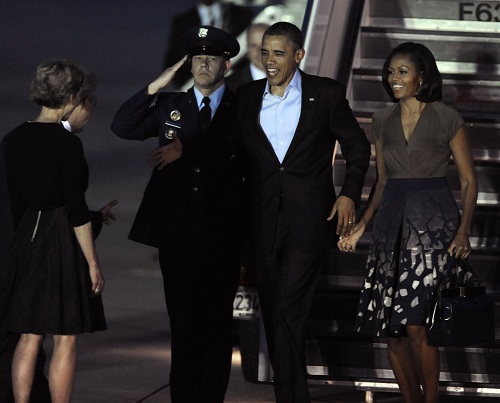
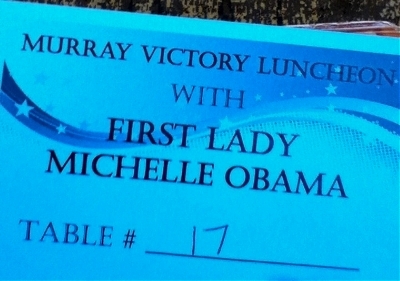
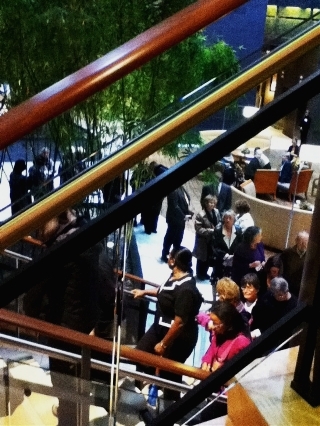
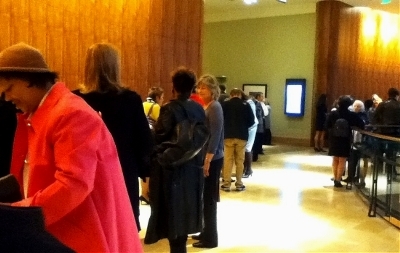
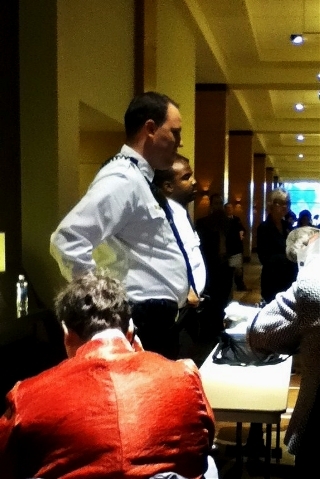
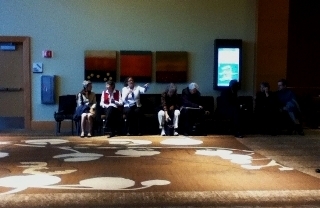
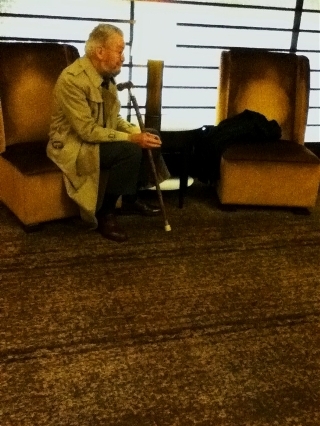
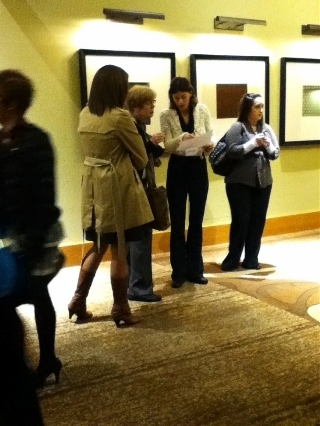
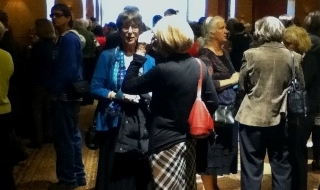
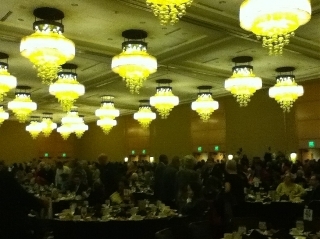

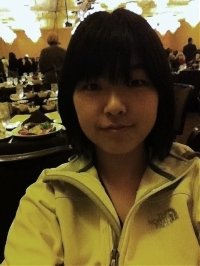
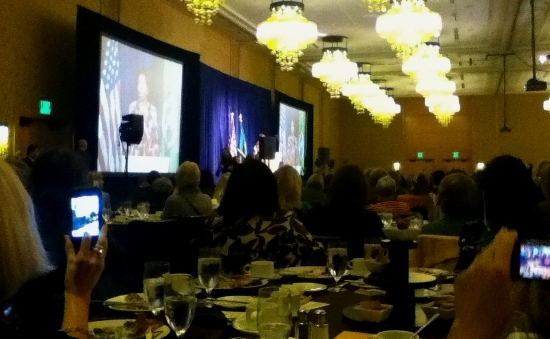








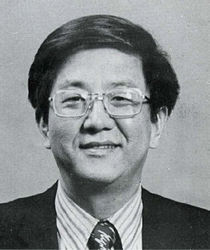 자료: 위키피디아 wikipedia
자료: 위키피디아 wikipedia 







